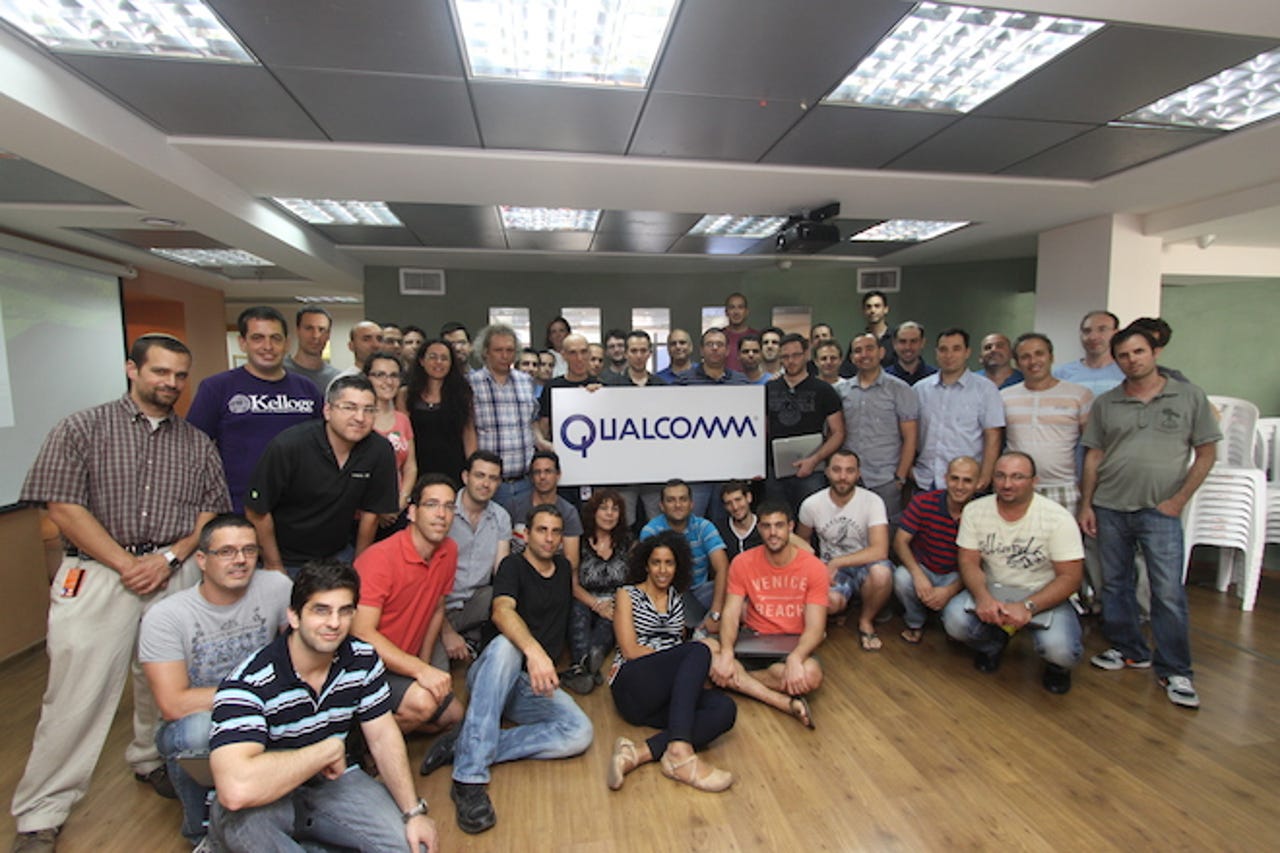Qualcomm's Wilocity move shows momentum building around WiGig


Qualcomm is joining the likes of Broadcom and Intel in drawing on technology from networking company Wilocity, developing wireless gigabit (WiGig) chip technology for deployment in devices and network equipment. The situation will be somewhat different for Qualcomm, however; on Thursday, it announced it was buying the Israeli startup.
While there's no official figure on how much the deal was worth, Qualcomm is reportedly paying about $300m for Caesarea-based Wilocity. The two companies have been working together since 2008 to develop WiGig chipsets for devices such as phones, tablets, and laptops.
WiGig (short for wireless gigabit) is the 'brand name' given to the more advanced 802.11ad standard by the Wi-Fi Alliance. WiGig offers data transfer speeds of up to 7Gbps — making it well suited to applications such as superfast video streaming.
Wilocity demonstrated WiGig chipsets at CES last year, using a Qualcomm VIVE 802.11ac wi-gi chip, which combines gigabit Ethernet, 802.11n, 802.11ac, and 802.11ad (WiGig) wireless capabilities in a single module. The tri-band platform is a reference design based on the Qualcomm Snapdragon 810, which Qualcomm says is the first mobile platform designed to support WiGig.
"Qualcomm Atheros and Wilocity have a successful history of collaboration and share a culture of invention," Tal Tamir, Wilocity's CEO, said in a statement after the acquisition.
"The Wilocity team will build upon Qualcomm's strengths and leadership to collaboratively deliver innovative wireless technology for mobile, computing, and networking customers to address the needs of an increasingly connected world. We are excited to join forces to take our vision to the next level and scale."
With the acquisition, Wilocity becomes part of Qualcomm's significant presence in Israel.
In 2010, Qualcomm acquired iSkoot, which makes social media apps for AT&T (Social Net), Verizon (Social Beat), and T-Mobile (Social Buzz), among others. In 2012, Qualcomm bought Israel's DesignArt Networks, which develops small cell technology for mobile base stations and wireless backhaul infrastructure. Also in 2012, Qualcomm bought the assets of Israel's EPOS, which specialized in digital ultrasound technology, engineered for input uses such as pen, stylus and gesture recognition.
But Qualcomm isn't the only company to put Israel's WiGig capabilities to work.
In 2012, Broadcom acquired Broadlight, a company that it actually competed with in the GPON (gigabit PON) market. Making him a $195m offer he couldn't refuse, Raanan Gewirtzmann said that he decided to sell out to his competitor because he appreciated the way Broadcom does business — and joining the nine other Israeli companies Broadcom had bought out since 2000.
"Broadcom is a serial acquirer, and we were aware of its history of acquisitions around the world, and especially in Israel," Gewirtzmann said. "This is a company that appreciates engineers, which we all were, and appreciates the contributions of its acquisitions." Broadcom has a number of devices based on Gigabit chipsets it has developed.
As for Intel, it, too, is very interested in the WiGig market. The company recently announced a new WiGig docking product, part of its new Maple Peak wireless system. The dock, to be built into new Intel-powered laptops and devices from 2015, necessitates the development of a WiGig chipset as well.
While Intel does not generally discuss which of its locations is the principal development location for new products, it's likely that at least some of the chip design was done in Intel's Haifa facility, where many of the company's chips have been designed over the years.
On a recent visit to Israel, Irwin M Jacobs, a co-founder and former chairman (now chairman emeritus) of Qualcomm, said that Israel was one of the company's "go-to" places for advanced technology.
"Israel's biggest contributions to mobile technology is designing better ways of controlling things, increasing data rates and enabling us to squeeze more out of existing bandwidth, using technology such as femtocells," Jacobs said.